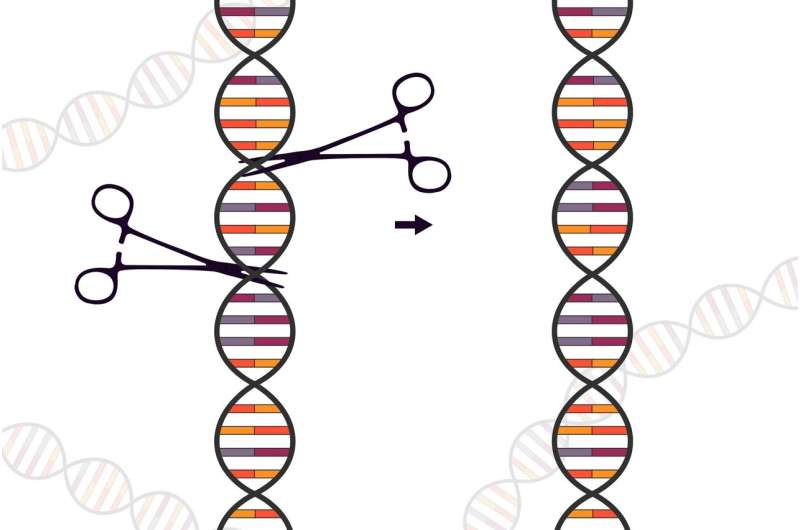A single error in the genetic code of the ACTA2 gene, which encodes the smooth muscle actin protein, is the most common cause of MSMDS. To directly target this mutation, researchers from Mass General Brigham engineered a bespoke CRISPR-Cas9 gene-editing enzyme to develop a potential therapy for MSMDS, which substantially prolonged survival and reduced vascular disease and neurodegeneration in mouse models of MSMDS.
Findings are published in Nature Biomedical Engineering.
“The story of this research truly began at the bedside,” said Patricia Musolino, MD, Ph.D., of the Department of Neurology at Massachusetts General Hospital (MGH).
“An infant in critical condition first brought together our team, which includes experts on the clinical, genetic, biological and therapeutic aspects of this disease. Now, we have a clear roadmap toward bringing an experimental drug back to the bedside.”
The therapy developed by the researchers relies on a genome editing tool called a base editor, which is comprised of a CRISPR-Cas9 protein fused to a DNA-modifying enzyme.

